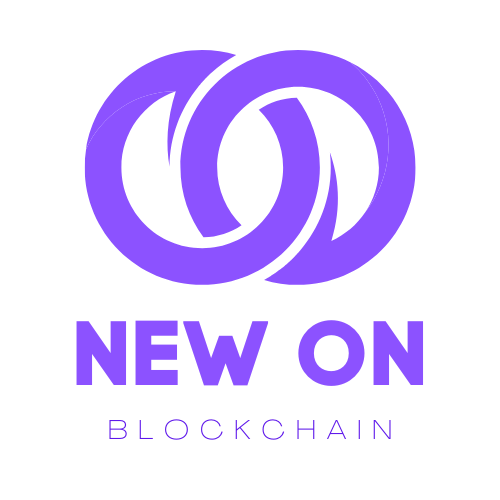In an age where data breaches and privacy concerns are at an all-time high, the concept of digital identity is under intense scrutiny. We’re increasingly handing over pieces of ourselves to digital platforms, but what if we didn’t have to? What if we could control our own identity, secure and verified, without relying on third-party entities? That’s exactly the vision Atoshi is working to make a reality.
Let’s explore how Atoshi is using blockchain technology to reshape the future of digital identity—and why it might just be the most important shift we’ll see in the decentralized world.
🛠️ What Exactly is Atoshi?
Atoshi is a decentralized identity platform built on blockchain technology, designed to give individuals complete control over their personal information. 🌱 Unlike traditional systems where you surrender your identity to large, centralized entities (think: social networks, banks, or government bodies), Atoshi enables users to create, manage, and share their digital identities on their own terms.
This isn’t just a shift in the way identities are managed—it’s a revolution in how we think about privacy, ownership, and trust online.
🔑 The Problem with Traditional Identity Systems
Traditional identity management relies on centralized authorities—think Facebook, Google, or government databases—to verify and store your data. The problem? These systems are prone to breaches, manipulation, and centralized control.
Have you ever wondered where your data goes when you upload it to a platform? Or how many organizations have access to it without your direct knowledge? With centralized systems, data can be exposed, leaked, or misused in ways you can’t track or control. 🕵️♂️
That’s where Atoshi comes in, flipping the script by using blockchain technology to decentralize identity management and shift control back to you, the user.
🌍 Atoshi’s Vision: Ownership and Control
Atoshi builds on the concept of self-sovereign identity (SSI). In plain terms, this means that you, and only you, control your identity. No third party owns your data, and no one can alter it without your consent. Through blockchain’s cryptographic security, your identity is immutable and private—your data stays safe, and you decide who gets to see it and when.
Here’s how Atoshi makes it happen:
- Create Your Decentralized Identifier (DID): This unique identifier is like a digital fingerprint, powered by blockchain, ensuring that no one else can replicate or control it.
- Add Verified Credentials: Once your DID is set, you can attach verifiable information to it—whether it’s your academic achievements, medical records, or online reputation. Every credential is encrypted and stored in your control.
- Seamless, Permissioned Sharing: You choose when and with whom you share your data. Need to prove you’re over 18 for a service? Share just your age, without exposing your full birthdate. It’s all about selective sharing. 🎯
🔐 The Blockchain Advantage: Trust, Security, and Transparency
What makes Atoshi stand out from traditional identity systems is blockchain’s inherent advantages: immutability, security, and transparency. Here’s why these features are a game-changer for digital identity:
- Immutability: Once data is stored on the blockchain, it cannot be tampered with. This makes your identity verifiable and tamper-proof, creating a new standard for trust. 🛡️
- Security: Blockchain’s cryptographic protocols ensure that only you have access to your identity, dramatically reducing the risk of hacking or unauthorized access.
- Transparency: Blockchain’s open ledger allows for full transparency, meaning that if there’s ever a dispute over your identity or credentials, it’s all there for anyone to verify in real time.
Together, these features create an unbreakable foundation for secure and trustworthy identity management. Your identity on Atoshi is yours, and no one can take it away or manipulate it.
🌐 The Power of Decentralization in Identity
One of the most powerful aspects of Atoshi’s approach is its decentralization. In a world where the majority of data is controlled by large corporations and governments, Atoshi offers a radically different vision.
Instead of relying on a central authority, Atoshi’s users interact directly with the blockchain. This means that you’re not at the mercy of a third party, whether it’s a platform, an app, or a database. Atoshi’s decentralized nature puts the power of identity back in the hands of the people.
This shift could have far-reaching implications across industries, from social media to healthcare, where privacy concerns are growing daily. 🌿
📊 The Real-World Impact of a Decentralized Identity System
The implications of Atoshi’s decentralized identity go beyond privacy. It’s about unlocking a future where we have more control over how we interact with the digital world. For example:
- Increased Privacy: Atoshi offers users more granular control over what they share and when they share it. No more handing over your entire personal history for a simple service.
- Reduced Fraud: With blockchain’s transparent and verifiable nature, fraud becomes much harder to perpetrate. Your identity credentials can be verified in real time, making identity theft a thing of the past.
- Cross-Platform Freedom: Instead of being tied to a single service, Atoshi’s system allows for interoperability across a variety of decentralized applications (dApps). Want to use the same identity across different platforms? Atoshi makes it possible without compromising your privacy.
- Reimagining Digital Trust: Atoshi has the potential to redefine how we approach trust in digital interactions. In a world where trust is often built on the reputation of centralized entities, Atoshi makes peer-to-peer trust not only possible but secure.
🔮 Looking to the Future: Decentralized Identity Everywhere
Atoshi isn’t just changing the game—it’s laying the foundation for a new digital economy where users have full control over their personal information. As more applications and services adopt decentralized identity solutions, the idea of digital ownership will no longer be a distant dream. 🚀
In the near future, we might see governments, financial institutions, and healthcare providers leveraging decentralized identities for everything from secure voting to medical record management. The possibilities are endless.
🧠 The Bottom Line: Atoshi’s Vision for Digital Identity
Atoshi’s approach to decentralized identity management offers a promising solution to the growing problems of privacy, security, and data ownership. With blockchain at its core, Atoshi empowers users to control their personal information and share it only on their terms—no middlemen, no compromises.
As we continue to move toward a more decentralized web, Atoshi’s vision could be a key stepping stone in creating a safer, more secure digital world. And for those of us who believe in privacy and self-sovereignty, this is the future we’ve been waiting for. 🌍





















